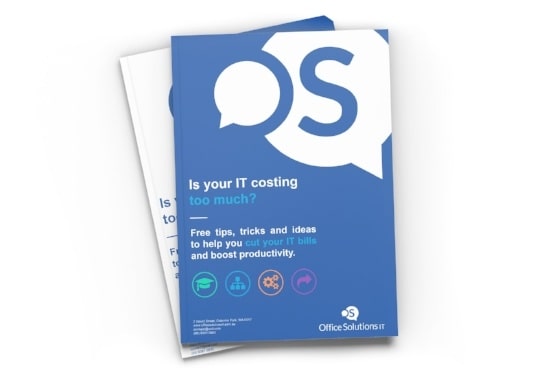Around 60 per cent of Australian businesses fail in the first three years of starting. Whether it's due to a lack of originality or not paying close attention to essentials, plenty of small trips can catch you off guard. With the right advice, you'll fall into the 40 per cent that find business success.
Tip 1: Don't copy your competitors, find a niche
In an era where many markets suffer from idea saturation, copying your competitors won't allow you to stand out. While it may sound cheesy, if you have a unique take on a product or service that dozens of others in Perth are offering, someone out there wants to use it. After engaging in some basic market research, consider how you could:
- Fill a gap in the local Perth market
- Stand out from the crowd with a novel idea
- Be more outlandish to gain attention
Tip 2: Have consistent branding
After determining how you'll stand out from the crowd, begin developing your branding. Everything from your slogans to the colours you use in your ads will help customers recognise your store or service throughout Perth, so put effort into which branding strategies will work best for you and stick to them. By using consistent branding throughout your offline and online ads, you'll develop an image others are familiar with and instil a sense of trust.
Tip 3: Understand your audience
Although a lot of niches offer lucrative opportunities, you can't seize said opportunities unless you know who you're addressing. Understanding your audience requires you to:
- Determine the demographics. Are you targeting men in their forties with a lot of spending power or young adults on a tight budget? Figuring out these nuances will help you deliver succinct advertising campaigns and appeal to the people who'll benefit from your products most.
- Get behind their feelings. Once you know who you're targeting, try to understand the emotions that will drive them towards your business. Although many people spend money on a whim, there's almost always an underlying emotion spurring them to do so. For example, someone buying a new perfume wants to feel confident by smelling good. Understanding such emotions allows you to frame the wording of your ads and website copy.
- Create a customer persona in your mind. If you're struggling, try to create a picture of your target customer in your mind in the same way that an author creates a literary character. Doing so makes it easier to pitch to them. By having them in your head as you develop your business, you're less likely to miss your target audience.
Always remember, few businesses appeal to everyone. Discovering who your audience is, no matter how narrow it may be, prevents you from floundering by trying to appeal to every resident in Perth.
Tip 4: Bring some empathy to your customer service
First of all, it's worth recognising that as a small business owner, you're less likely to mirror the rapid response times larger organisations create. However, even if you do respond to queries and complaints slowly, you can make up for this with an empathetic approach. Play on the fact that your business is small by delivering a personalised and empathetic service that will allow you to compensate for a lack of speed. One way to achieve this is to have your employees use your products and services. That way, when they do deal with complaints, they'll speak from the heart rather than trot out buzzwords.
Tip 5: Mind your language
On the empathy note, the words you and your employees use will have a significant impact on your reputation. Try to use phrases such as:
"I understand what you mean"
"I can see where you are coming from"
"I want to help you make this better"
Using such phrases acknowledges that you have recognised a customer's problem, without admitting fault. However, using them alone won't save your reputation if your customer has a bad experience. One of the world's leading airlines, British Airways, uses a phrase called "Listen and make things better now." Ensure that you and your employees know how to listen, apply the right language, and act on problems at the moment to develop a stellar reputation that precedes you for the right reasons.
Tip 6: Employ the use of human factors
When you first begin building your business, it's not unusual to want to hire employees and send them out to work straight away. However, depending on the nature of your organisation, doing so could mean you're ignoring a vital element of organisational communication called "human factors." In short, human factors involve ensuring your employees understand each other's roles. It gives them the confidence to communicate with each other and to make suggestions to those they perceive to be at a higher level than themselves. The use of human factors avoids costly mistakes and is routinely employed in arenas such as medicine and aviation to develop better business acumen at all levels.
While the success of any new business can never be guaranteed, your business is more likely to be profitable by taking your time, following these tips, and learning from mistakes as you go along.
If your business requires IT support, feel free to give our team a buzz for information on how we can help you be even more of a success.














